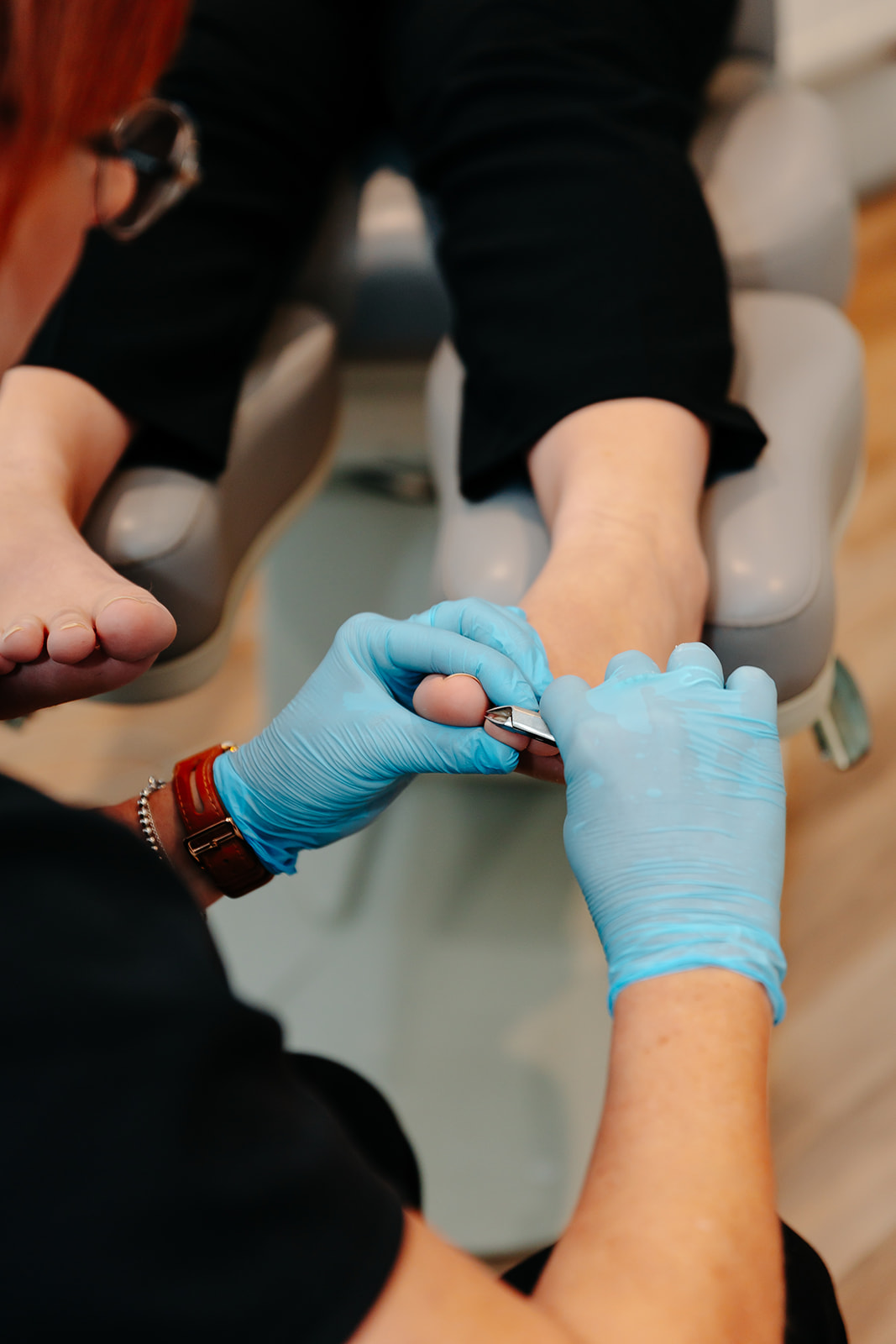Simon Morgan
July 13, 2017
July 18, 2023

Hammer Toe typically develop over time due to an increasing imbalance in the toe’s tendons, ligaments, and muscles. These imbalances eventually cause the toe to contract and bend at one or both of the toe’s two joints.
Hammer Toe occurs when any of the small toes of your foot become bent and prominent (stick up). The four small toes of your foot are each made up of three bones with joints in between them. Normally these bones and joints are straight. A hammer or claw toe occurs when your toe becomes bent at the first or second joint. Sometimes a bursa (like a deep blister) is formed over your joint and this can become inflamed. Callus (hard skin) or corns can also form over your joints or the end of your toe.
Recognising the symptoms of hammer toe is crucial for early intervention. Common signs include:
The most common cause of hammer toe is wearing short, narrow shoes that are too tight. This causes the toe to bend upward. Muscles and tendons in the toe tighten and become shorter. This makes the toe stay in the bent position. People who are born with long bones in their toes are more likely to develop hammer toe. Children who wear shoes they have outgrown may develop this condition. People who wear very narrow shoes or high-heeled shoes are also more likely to develop a hammer toe.
Some other factors that may increase your chances of hammer toe are:
If you suffer from hammer toe, there are some exercises you can do to help reduce symptoms, including:
Gently stretching your toes can help improve flexibility and relieve stiffness.
How to do it: Sit comfortably and extend your leg in front of you. Use your hands to carefully pull on your affected toe, gently straightening it. Hold this position for 15-30 seconds and repeat 3-5 times.
This exercise is a practical way to strengthen the muscles in your feet and helps you gain better control over your toe movements.
How to do it: Start by placing a small towel on the floor. While sitting, use your toes to scrunch the towel towards you, and then push it back out. Repeat this movement for 5 to 10 sets.
Picking up small objects can help improve toe dexterity and strengthen your foot muscles.
How to do it: Put some marbles or small balls on the floor in front of you. Use your toes to pick them up one at a time and place them in a bowl. Try to do this for 10-15 repetitions with each foot.
Surgery is an option and is where your toes may be pinned to straighten them. Other solutions include orthotics, strapping and taping. Seeing a Biomechanical Specialist will help determine the correct course of action for each individual.
If you are suffering from Hammer Toe or want to learn more, get in touch with our Patient Services team by calling 01380 730473.